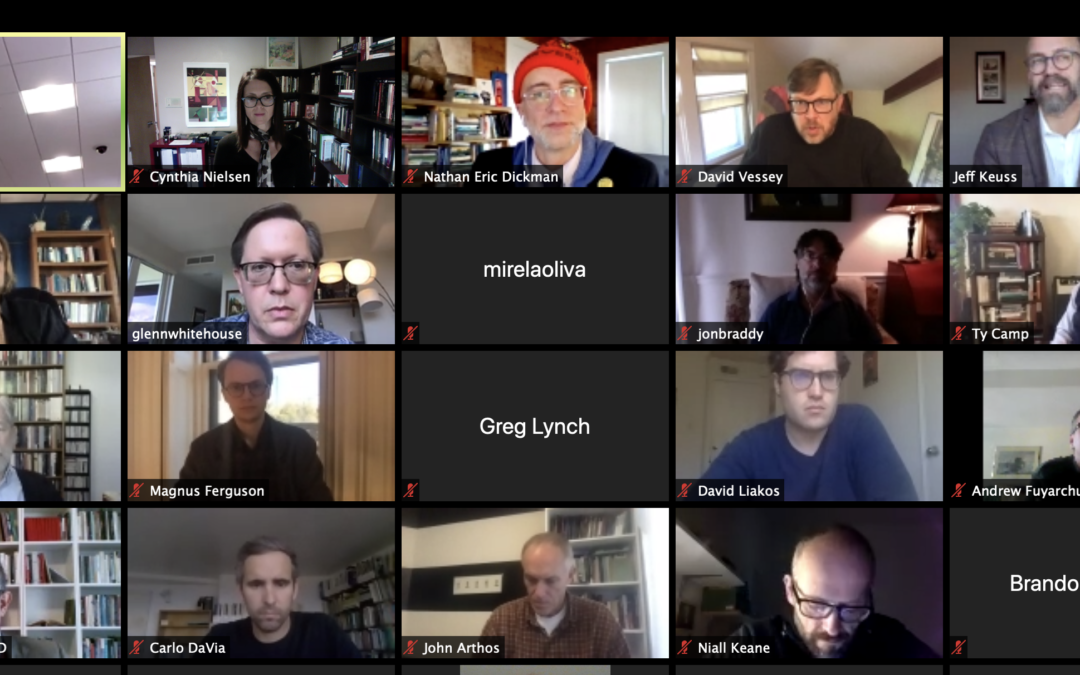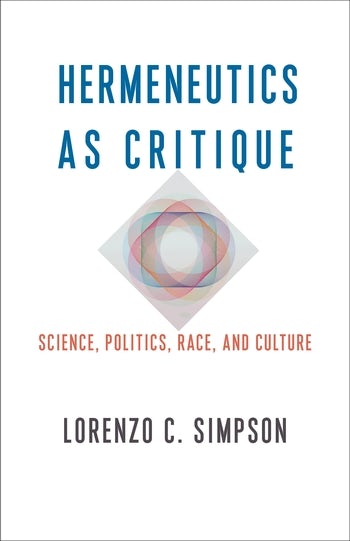by nasph | Aug 2, 2021 | Uncategorized
**Update**
***Times Listed Below are Eastern Standard Time
Due to rising Covid cases in Michigan, we have made the decision to move this year’s conference fully on-line. We will post details about how to join the conference here in the coming days.
If you have already paid for dues, conference fees, or banquet fees will will refund those through PayPal. It may take a couple of days for these to process, but if you do not see your refund on your account after that time please let us know.
The official conference program is here, and the schedule of events is below. Note that the schedule may change as we shift to the fully virtual format.
To join the conference sessions, just use the zoom links below.
Link to join Day 1 (Thursday)
Link to join Day 2 (Friday)
Link to join Day 3 (Saturday)
Conference Schedule (times listed are eastern time zone)
Thursday October 7
1:15-1:30 PM Welcome and Announcements
1:30-2:30 PM Theodore George, Texas A&M | Gadamer on the Geopolitics of Translation
2:30-2:45 PM Break
2:45-4:00 PM Invited Speaker: Catherine Homan, Mount Mary University | Remembering the Future: From the Poetic to the Political
4:00-4:15 PM Break
4:15-5:45 PM Keynote Address: Bruce Ellis Benson, University of Vienna | Having Faith in Improvisation
Friday October 8
9:30-10:30 AM John Arthos, Indiana |The ‘Unshapely Form’ of the Work: Parsing the Structure of an Irresolvable Paradox
10:30-10:45 AM Break
10:45-12:00 PM Invited Speaker: Melissa Freeman, University of Georgia | The Event of Art’s Perturbation
12:00-1:30 PM Break
1:30-2:30 PM John V. James, Dallas (Graduate Student Prize Winner) | On the Several Senses of Forgetting in Gadamer’s Hermeneutics
2:30-2:45 PM Break
2:45-3:45 PM Text discussion session | Gadamer’s “Goethe and Mozart: The Problem of Opera” (1991)
3:45-4:00 PM Break
4:00-6:00 PM Author Meets Critics | Hermeneutics as Critique (Columbia UP)
Speaker: Chris Manno, Portland
Speaker: Cynthia Nielsen, Dallas
Speaker: Iaan Reynolds, Villanova
Speaker: David Vessey, Grand Valley State
Speaker: Darren Walhof, Grand Valley State
Respondent: Lorenzo Simpson, Stony Brook
Saturday October 9
9:30-10:30 AM Pavan Brar, Duquesne | A Contribution to a Philosophical-Hermeneutic Approach to Musical Understanding
10:30-10:45 AM Break
10:45-12:00 PM Invited Speaker: Mirela Oliva, Univ. of St. Thomas (Houston) | Displacement and Life Changes
12:00 PM-1:30 PM Break (Lunch)
1:30-2:30 PM Business Meeting, All Members Welcome
2:30-3:30 PM Niall Keane (Padova) | The Temporality of the Artwork and the Temporality of the Cosmos: Gadamer on Play, Symbol, Festival
3:30-3:45 PM Break
3:45-5:15 PM Keynote Address: Dan Tate, St. Bonaventure | Gadamer on Lyric and the Recovery of Language
by nasph | Mar 19, 2021 | Uncategorized
The CFP for the 2021 NASPH Annual Meeting can be found here.
This year’s conference will be held October 7-9 at Grand Valley State University in Grand Rapids, Michigan. The deadline for submissions is July 1.
by nasph | Feb 28, 2021 | Gadamer Resources
Hermeneutical Movements now has an amazing online Gadamer Bibliography owing to the work of Carlo DaVia and David Vessey. You can access the Bibliography here: (http://hermeneuticalmovements.com/gadamer-translations/)
by nasph | Feb 17, 2021 | Uncategorized
Dr. Lorenzo Simpson (Stony Brook University) has recently published a new book on hermeneutics that will, no doubt, be of interest to NASPH members and friends. The brief description below is taken from Columbia University Press. Congratulations, Lorenzo!
Brief Description
Hermeneutics has frequently been dismissed as useful only for literary and textual analysis. Some consider it to be Eurocentric or inherently relativistic and thus unsuited to social critique. Lorenzo C. Simpson offers a persuasive and powerful argument that hermeneutics is a valuable tool not only for critical theory but also for robustly addressing many of the urgent issues of today.
Simpson demonstrates that hermeneutics exhibits significant interpretive advantages compared to competing explanatory modalities. While it shares with pragmatism a suspicion of essentialism, an understanding that disagreements are situated, and an insistence on the dialogical nature of understanding, it nevertheless resolutely rejects the relativistic accounts of rationality that are often associated with pragmatism. In the tradition of Gadamer, Simpson firmly establishes hermeneutics as a resource for both philosophy and the social sciences. He shows its utility for unpacking intractable issues in the philosophy of science, multiculturalism, social epistemology, and racial and social justice in the global arena. Simpson addresses fraught questions such as why recent claims that “race” has a biological basis lack grounding, whether female genital excision can be critically addressed without invidious ethnocentrism, and how to lay the foundations for meaningful cross-cultural dialogue and reparative justice. This book reveals how hermeneutics can be a worthy partner with critical theory in achieving emancipatory aims.
Lorenzo C. Simpson is professor of philosophy at Stony Brook University. His books include Technology, Time, and the Conversations of Modernity (1995) and The Unfinished Project: Towards a Postmetaphysical Humanism (2001).
by nasph | Nov 7, 2020 | Uncategorized
As David Vessey announced at the conference last week, we are starting an on-line Gadamer reading group this winter. The first meeting will be Sunday December 13th from 2:00-4:00 ET. We will be discussing “The Universality of the Hermeneutical Problem,” a lecture given in 1980 at The University of Pretoria and published in Lectures on Philosophical Hermeneutics, Universiteit van Pretoria, 1982. (Note that this is not the essay with the same title that is published in Philosophical Hermeneutics).
If you would like to participate, please contact David Vessey (davevessey@yahoo.com) for the Zoom link and a copy of the reading.

by nasph | Nov 1, 2020 | Uncategorized
Many thanks to everyone who participated in our 15th annual NASPH conference (via Zoom). It was wonderful to see everyone and to discuss such rich and thought-provoking papers. We are especially thankful to Dr. Carolyn Culbertson for the work she did to live-stream our conference (masked and socially distanced) and for Florida Gulf Coast University for sponsoring the event.
by nasph | Sep 10, 2020 | Uncategorized
As we announced earlier, this year’s NASPH annual conference will be held virtually on October 30 and 31. You can view the conference program here.
If you would like to attend, please send an email to nasphermeneutics@gmail.com. We will reply with a link to the Zoom session in which the conference will be hosted and the password that you will need to join. To help us avoid a last-minute backlog, we request that you send your email a week or so before the conference starts (but we will still accept requests received after that).
Below is the conference schedule. To help facilitate discussion we encourage participants to read the papers ahead of time. You can view the papers by clicking on the titles below.
Friday, 10/30, 2:00-5:25 EST
2:00-2:15: Welcoming Remarks/ About NASPH / Explanation of Program & Logistics
2:20-3:10: Presentation and Discussion: John Arthos, “Ich, das Wir, und das Wir, das Ich ist: Interrogating the I-lessness of Hermeneutic Understanding”
3:15-4:30: Keynote Presentation and Discussion: Lauren Barthold, “Enactivist Empathy and Dialogue“
4:35-5:25: Presentation and Discussion: Carlo DaVia, “Gadamer on Essences”
Saturday, 10/31, 10:00-3:30 EST
10:00-10:10: Welcome / Review of Program & Logistics
10:15-11:30: Keynote Presentation and Discussion: Theodore George, “Is Hermeneutics ‘Realistic’?: Two Responses and a Question”
11:30-12:15: Lunch break
12:20-2:10: Invited Panel Presentation and Discussion: “Ricoeur and the Just University,” Dan Boscaljon, Nathan Eric Dickman, Jeff Keuss, and Glenn Whitehouse
2:15-3:05: Presentation and Discussion: Magnus Ferguson, “Joycean Hermeneutics and the ‘Tyranny of Hidden Prejudices’”
3:10-3:30: Adjournment and Business Meeting
We are looking forward to ‘seeing’ you all and to an engaging dialogue.
by nasph | Jul 28, 2020 | Uncategorized
Due to the ongoing COVID-19 pandemic, we have decided to move the 2020 annual meeting to an on-line format. The conference will be held via Zoom on the afternoon of Friday October 30 and from mid-morning to mid-afternoon on Saturday October 31.
Though the format will be unusual, we have a terrific slate of speakers lined up for the conference and we are looking forward to lively discussions.
To help facilitate those discussions, we will be posting papers from the presenters here in the coming weeks. We encourage participants to read these ahead of time, as doing so will promote more fruitful dialogue. Presenters may choose to read or summarize their papers.
We will also be posting a full schedule and more details about the format here soon.
by nasph | Jul 13, 2020 | Uncategorized
Congratulations to long-time NASPHer Ted George, whose new book, The Responsibility to Understand: Hermeneutical Contours of Ethical Life, has just been published with Edinburgh University Press. You read more about it over at the Hermeneutical Movements blog.
by nasph | Jun 14, 2020 | Uncategorized
Our friends at the Society for Ricoeur Studies have announced the CFP for their upcoming annual conference, which will be held on-line this year.


